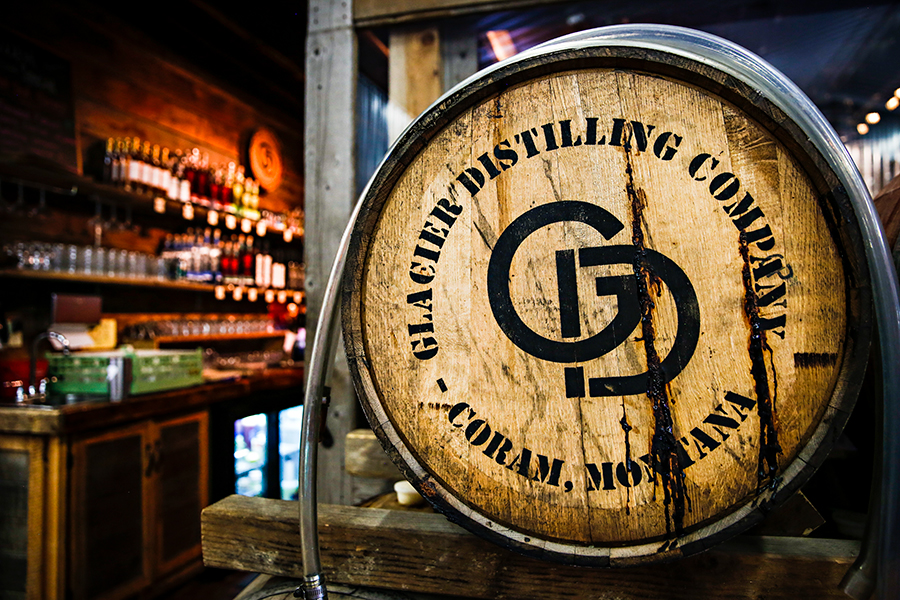Relief for the Alcohol Industry
Permanent tax reform for brewers, distillers and vintners passed in December, preventing a potential tax hike and bringing some stability to the service industry
By Maggie Dresser
As Montana’s breweries, distilleries and wineries have struggled with state-mandated closures, capacity limitations, supply disruptions and a generally volatile business environment since the pandemic began, they now have one less headache after Congress passed legislation that prevents the possibility of a significant tax hike in 2021.
The Craft Beverage Modernization and Tax Reform Act (CBMTRA) was passed at the end of 2020, making the tax rate of $3.50 per barrel for breweries and $2.70 per barrel for distilleries permanent. The tax rate has been in place since 2018 and was set to expire this year.
“Making it permanent means breweries avoided a tax (hike) on Jan. 1,” Montana Brewers Association (MBA) Executive Director Matt Leow said. “It’s an incredible relief at a critically important time as breweries struggle to get through the pandemic.”
Until 2018, federal excise taxes for breweries were double what they are now, at $7 a barrel. Distilleries were even higher at $13.40 per barrel.
Once the tax dropped in 2018, Flathead Lake Brewing Company owner Greg Johnston said his business in Bigfork saved $12,000, which he used to purchase equipment tanks and expand payroll.
Despite the tax cut Johnston received three years ago, he faced uncertainty at the end of every year because the relief had an expiration date. Every year, he and all other breweries and distilleries had to wait to see if the legislation would pass again. Now that the tax reform is permanent, Johnston no longer has to worry about a tax hike at the end of each year. The tax increase would have likely raised consumer prices, too, he said.
“The stability that the tax reform will provide for our future planning is great,” Flathead Lake Brewing Director of Brewing Operations Jon Hartig said. “To have something stable in the industry is fantastic.”
While Johnston started his business before the tax reform was instated in 2009, Bias Brewing in Kalispell has only been open since 2018. Owner Gabe Mariman says his business model was planned in line with the 2018 tax rate, and any change to the rate would have impacted Bias significantly.
Now that the tax reform is permanent, Mariman can focus his efforts on his expansion plans, like adding more equipment and building a canning line, selling more beer with a to-go program and keeping core employees working with roughly $3,500 in tax savings.
“When you look at the operating costs during the pandemic, raising our barrel taxes would have been a very bad thing for our company,” Mariman said. “We’re operating on a thin budget right now, we’re adapting but we’re doing it in a conservative way … to increase our taxes right now would have been detrimental.”
At Glacier Distilling Company, Operations Manager Pat Cattelino remembers paying $13.50 per barrel when he started in 2013. With the tax break in 2018, the company purchased new equipment and increased whiskey production. If the distillery returned to the former tax, he says it would have had to cut back production.
“We wouldn’t have been able to put nearly as much whiskey into barrels, which down the road means a whole lot less revenue,” Cattelino said.
The tax uncertainty was particularly tricky with whiskey production since it takes anywhere from two to 10 years to make. “When you’re making whiskey, we plan years ahead of time,” he said. “It’s different than beer where you make it and you sell it.”
With all of the extra obstacles breweries and distilleries have endured during the pandemic, Leow speculates that the pandemic may have sped up the process of the tax reform’s permanence and is unsure whether or not it would have been instated otherwise. But he says the crisis made it a no-brainer.
Montana has more than 90 breweries that create both hospitality and manufacturing jobs, which Leow says is vital to the state’s economy. Utilizing local hops and malt barley, the industry also boosts local agriculture.
According to the Brewers Association, the state has the third most breweries per capita in the country. The industry has a $498 million impact in Montana.
“Montana is producing high-quality beers with great support for all things local,” Leow said. “There’s a lot of pride in the local breweries and they’re very connected to communities.”